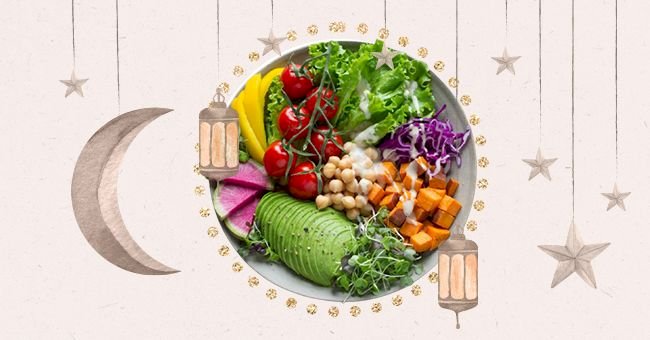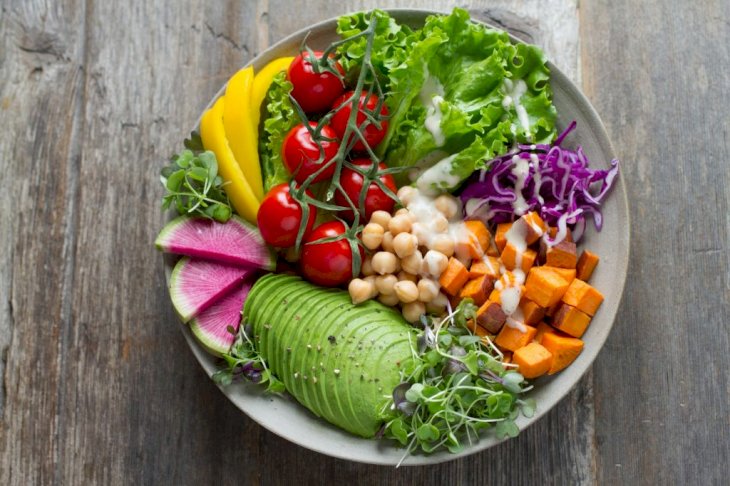
5 Tips From Our Team Doctor To Stay Fit During Ramadan & Beyond
Ramadan is an excellent time for spiritual introspection, but there’s more to it than just the religious aspect. Fasting teaches us to be mindful of our eating patterns, especially the meals we consume while keeping and breaking the fast.
Next to prioritizing our praying time, many of us face the pertinent issue of monitoring our diet during Ramadan. People tend to eat heavily during sehri in hopes of staying energized all day long, but sometimes it can have the opposite effect, leading to several health issues.
Iftar time is the most awaited time of the day when people tend to stuff themselves with all food options to compensate for low energy levels. Mindful eating and light movement are highly critical elements to staying fit during Ramadan. Scroll down to read some tips from our team doctor on how to prioritize your health in this holy month and beyond.
1.Stay Hydrated

Photo By Julia Zolotova On Unsplash
Keeping yourself adequately hydrated will help you feel more active and regulate your blood oxygen levels. Instead of drinking glasses full of water all at once, it’s best to consume them at short time intervals. You can also drink homemade fruit juices and lemonades.
“Drink water as often as you can; that might mean keeping a bottle close by. It helps you meet your water requirements.”
-Dr. Saadiqah Hajat.
2.Avoid Oily & Spicy Foods

Photo By Alana Harris On Unsplash
Many people are concerned about their calorie intake in Ramadan, and they tend to gain more weight even though they’re fasting. One reason for this can be consuming oily and spicy meals, especially if your lifestyle is sedentary and you’re not burning all the extra calories.
Consuming heavy foods during Ramadan can lead to obesity, an increase in cholesterol levels, and stomach issues like indigestion and burning. In severe cases, people can even develop heart issues, like coronary heart disease. Too much sugar intake can result in diabetes.
3.Consume Fruits & Vegetables

Photo By Anna Pelzer On Unsplash
Fruits and veggies are extremely healthy and wholesome foods and are chock full of proteins, vitamins, and minerals. They are also high in water and fiber contents and provide an instant energy boost.
“Make sure your iftar plate is filled with protein and some vegetables because the more colorful it is, the better. You might have a sweet tooth and can’t kick the craving, so definitely try going for fruit instead of candy. Eating more fruits and veggies will also help keep you hydrated.”
-Dr. Saadiqah Hajat.
4.Light Movement

Photo By Ifrah Akhter On Unsplash
Many of us tend to do away with exercise and workouts during Ramadan because we feel that it might end up draining our energy. While it’s best to avoid heavy exercise while fasting, you can do a little stretching or practice yoga once you’ve broken your fast. Light walking is another safe way of moving your body.
“It’s difficult to make the time for exercise, but you can really benefit from a light walk just before Taraweeh. You can also try making those last minutes fly by and do other forms of light exercise; just remember to break your fast after. Eat high fiber foods at suhoor to keep your energy levels up throughout the day.”
-Dr. Saadiqah Hajat.
5.Power Naps

Photo By Katya Austin On Unsplash
And finally, rest is essential to feeling recharged and refreshed. If you’re staying up all night until sehri, make sure you make up for this time by taking power naps to re-energize yourself and stay healthy.
“If you’re feeling exhausted and need a nap, keep it under 30 minutes; anything more will affect your sleep cycle.”
-Dr. Saadiqah Hajat.